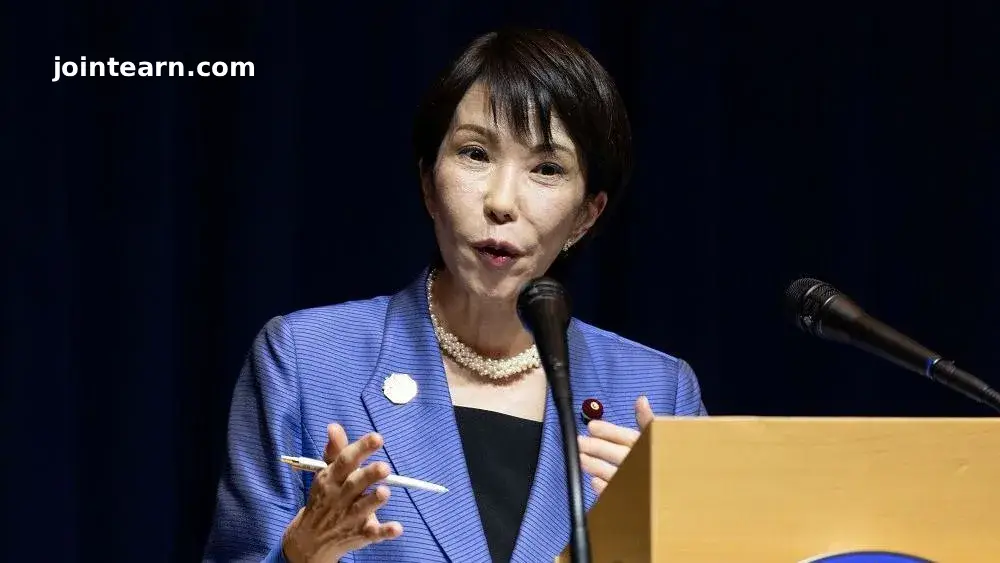
Tokyo, Japan — November 12, 2025: Japan’s new Prime Minister Sanae Takaichi has sparked a diplomatic crisis with China after suggesting that Japan’s Self-Defence Forces (SDF) could intervene if a Chinese attack on Taiwan threatened Japan’s national security.
The comments, made during a parliamentary session last Friday, mark a departure from Japan’s long-standing policy of strategic ambiguity on Taiwan — a stance meant to deter conflict while avoiding direct provocation of Beijing.
Timeline of Tensions
The incident began when an opposition lawmaker asked Takaichi what circumstances around Taiwan would qualify as a “survival-threatening situation” for Japan.
“If there are battleships and the use of force, no matter how you think about it, it could constitute a survival-threatening situation,” Takaichi replied.
Under Japan’s 2015 security legislation, this legal term allows the deployment of SDF troops when an armed attack on an ally poses an existential threat to Japan.
Beijing quickly condemned the remarks. China’s foreign ministry labeled them “egregious,” and Xue Jian, the Chinese consul general in Osaka, added a now-deleted comment on X (formerly Twitter): “The dirty head that sticks itself in must be cut off,” interpreted by some as a direct threat to Takaichi.
Japan’s Chief Cabinet Secretary Minoru Kihara called the comment “highly inappropriate,” and Tokyo lodged formal protests with Beijing.
Takaichi Stands Firm
Despite the backlash, Prime Minister Takaichi refused to retract her statement, insisting that it aligns with Japan’s official position.
“I gave a somewhat concrete answer while considering the worst-case scenario,” she said.
“From now on, I will refrain from making explicit statements on specific scenarios.”
She emphasized that Japan remains committed to resolving the Taiwan issue peacefully through dialogue while maintaining readiness to respond if Japan’s security is threatened.
Historical Context
The dispute underscores deep-seated tensions between China and Japan, dating back to armed conflicts in the 19th century and Japan’s wartime aggression during World War II.
Takaichi, a protégé of former Prime Minister Shinzo Abe, has pursued a hawkish foreign policy, advocating closer ties with the United States and increased Japanese defense spending — moves that alarm Beijing.
She is also a longstanding supporter of Taiwan, previously warning that a blockade could threaten Japan and suggesting that Japan could mobilize its forces to prevent a Chinese invasion.
Why This Matters
China claims Taiwan as its territory and has not ruled out using force to achieve reunification. Meanwhile, Taiwan’s government and its allies, particularly the United States, remain on alert amid rising military pressure.
Japan has traditionally avoided taking public positions on Taiwan to maintain regional stability and protect its economic and security interests. Takaichi’s comments signal a more assertive, hawkish stance in Japanese politics, echoing Abe’s security policies and potentially reshaping regional dynamics in East Asia.
China’s Response
China’s foreign ministry spokesperson Lin Jian reaffirmed Beijing’s position:
“Taiwan is China’s Taiwan, and we will not tolerate any foreign interference.”
“What signal is the Japanese leader trying to send to Taiwan independence forces? Is Japan challenging China’s core interests?”
The exchange follows a prior diplomatic spat earlier this month, when Takaichi met with a senior Taiwanese official during the APEC Summit in South Korea, which Beijing deemed a violation of the One-China principle.
Regional Implications
Analysts warn that Takaichi’s remarks could increase tensions across the Asia-Pacific, where disputes in the Taiwan Strait and the South China Sea already heighten geopolitical risks. Japan’s newfound assertiveness, combined with its alliance with the U.S., may provoke further friction with Beijing and complicate efforts to maintain regional peace.


Leave a Reply